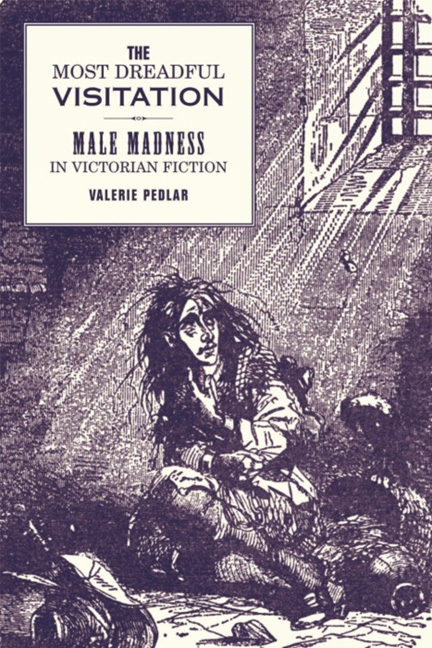Book contents
- Frontmatter
- Dedication
- Contents
- Acknowledgements
- Introduction
- 1 Insurrection and Imagination: Idiocy and Barnaby Rudge
- 2 Thwarted Lovers: Basil and Maud
- 3 Wrongful Confinement, Sensationalism and Hard Cash
- 4 Madness and Marriage
- 5 The Zoophagus Maniac: Madness and Degeneracy in Dracula
- Conclusion
- Bibliography
- Index
4 - Madness and Marriage
- Frontmatter
- Dedication
- Contents
- Acknowledgements
- Introduction
- 1 Insurrection and Imagination: Idiocy and Barnaby Rudge
- 2 Thwarted Lovers: Basil and Maud
- 3 Wrongful Confinement, Sensationalism and Hard Cash
- 4 Madness and Marriage
- 5 The Zoophagus Maniac: Madness and Degeneracy in Dracula
- Conclusion
- Bibliography
- Index
Summary
In 1858 Robert and Charlotte Bostock appealed to the new Divorce Court for judicial separation, one of the first cases to be heard after the Divorce Act of 1857. The differences between them derived from problems in negotiating a course between authority and its abuse on the part of the husband, and between defiance and submission on the part of the wife. At one stage of their quarrels, surgeons who had been called in by Charlotte advised her that her husband should be tended by a ‘keeper’ because of the danger of sudden attack. There were signs that Robert was suffering from mental disturbance and his determination to protect his authority in the home could put her in danger. In another case heard that year, John and Frances Curtis brought to the court a litany of marital wrongs that had led to John's suffering a breakdown, characteristically diagnosed as ‘brain fever’ in 1850. Brain fever in this case was clearly considered a mental rather than a physical affliction, since John was confined in an institution and put in a straitjacket. He was released, but, after several years of dispute in which he tried to discipline his wife by refusing to let her manage their children, and by humiliating her in front of the servants, suffered another attack of ‘brain fever’ and was again confined. After his release, he tried to persuade Frances to return to him. When she refused and retreated with the children to her sister's, he sought out her address and tried to drag away the youngest child. In a letter written to her mother, Frances complained that her husband ‘carries the idea of his authority to a mania’. In yet another case, heard in 1869 and 1870, James Kelly, Anglican vicar of St George's Church in Liverpool, insisted on his marital authority with a zeal that left him open to the charge of obsession. To punish his wife for what he perceived to be her plotting against him, he entirely deposed her from her position as manager of the household, treating her, in the words of the judge, ‘like a child or lunatic’.
- Type
- Chapter
- Information
- The Most Dreadful VisitationMale Madness in Victorian Fiction, pp. 111 - 133Publisher: Liverpool University PressPrint publication year: 2006



